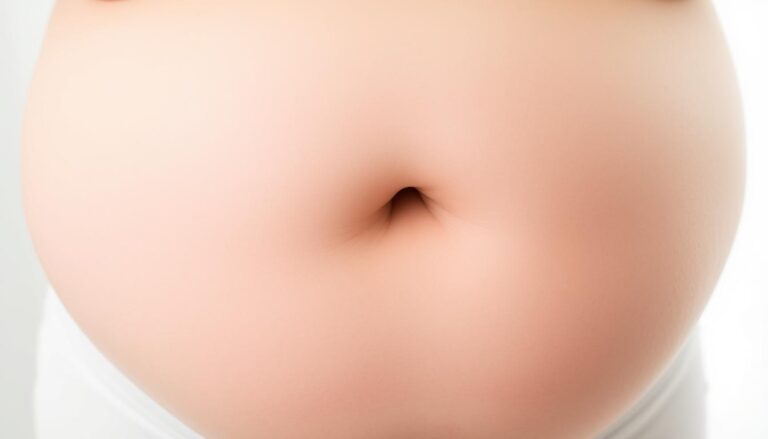Does the time of day affect how well you burn fat during a workout? A study in Diabetes Care followed 30,000 adults over eight years. It looked at how timing impacts weight loss and health. The study found that evening workouts (6 p.m. to midnight) can lower heart disease risks. Morning workouts (7 a.m. to 9 a.m.) were linked to smaller waistlines.
Morning exercisers had smaller waists (37.7 inches) compared to midday (38.5 inches) or evening (38.4 inches). But the study stressed that how often you exercise is key, not just how long. Nieca Goldberg, M.D., of NYU Langone says, “The best workout time for weight loss is consistent and tailored to your body.” She recommends combining any workout schedule with a healthy diet and regular activity.
Morning workouts, even if short, can boost fat burning before eating. Evening workouts, on the other hand, can improve sleep and metabolism. So, is there a single best time? It might depend on your body’s natural rhythm and your lifestyle.
Key Takeaways
- Morning workouts may reduce BMI and waist size due to fasting-induced fat burning.
- Evening exercise correlates with lower risks of heart disease and diabetes complications.
- Short, frequent exercise bursts matter more than long, infrequent sessions.
- Individual factors like chronotype (morning vs night person) shape results.
- Consistency in exercise frequency, not timing alone, drives long-term fat loss.
Understanding the Relationship Between Workout Timing and Fat Loss
Getting the timing right for exercise to burn fat is key. It’s all about how our body’s natural rhythms and physical activity work together. Whether you’re a morning person or a night owl, your body’s response to exercise changes.
Studies show that our body’s internal clock affects hormone levels and body temperature. This, in turn, changes how well we burn fat at different times of the day.
How Timing Affects Your Body’s Fat-Burning Ability
A study on mice found that morning workouts boost fat burning genes. Human trials confirm this: those who worked out between 7-11 AM lost 7.2% of their body weight over 10 months. This is double what evening exercisers lost.
This suggests that the best time to work out for fat loss depends on your natural body rhythm.
- Early-morning workouts in studies showed higher fat-mobilization rates
- Evening exercise outcomes vary by individual circadian preference
- Consistency in timing matters more than rigid schedules
The Science Behind Workout Timing and Metabolism
Circadian clocks control hormones like cortisol and insulin, which affect fat storage and breakdown. Morning workouts might help your body use fat as fuel better. Paul Arciero, MD, says: “Exercise timing works with our molecular clocks to increase fat loss benefits.”
Even when hormone levels were the same in morning and evening groups, fat loss was different. This shows how timing plays a unique role.
Debunking Common Myths About Exercise Timing
Myths like “fasted cardio is always best” ignore individual differences. A 10-month trial found that sporadic exercisers lost 5.5% of their body weight. This proves that being consistent is more important than following a strict schedule.
Another myth is that evening workouts mess up sleep. But research shows no big sleep impact when exercise timing matches natural energy levels. Focusing on what works best for you, not generic advice, leads to better results without hurting recovery.
Morning Workouts: Pros and Cons for Fat Loss
Morning workouts are great for losing weight because they boost your metabolism. Studies show that exercising between 7–9 a.m. helps burn fat better. A study with 5,285 people found that those who worked out in the morning had lower BMIs and smaller waists.

“Morning exercise may make you less ravenous later in the day—or less tempted by pictures of mouthwatering food,” according to a 2012 study in Medicine and Science in Sports and Exercise.
The Benefits of Fasted Morning Exercise
Working out on an empty stomach before breakfast uses more fat for energy. Women who exercised in the morning lost 5% of their body fat, compared to 2% in other groups. Dr. Arciero’s research also shows that morning workouts help reduce belly fat.
How Morning Workouts Affect Your Metabolism
- Morning activity boosts post-exercise calorie burn for up to 14 hours.
- Regulates hunger hormones like ghrelin and leptin, reducing overeating risks.
- Improves insulin sensitivity, aiding fat metabolism all day.
Tips for Maximizing Fat Loss During Early Workouts
Start with light cardio or yoga to get your body burning fat. Skip heavy breakfasts and go for black coffee or water. Aim for consistency, even if it’s just 20 minutes a day. Keep track of your progress to see how your waist and energy levels change.
While morning workouts have their benefits, it’s important to listen to your body. Find a routine that works for you and enjoy the process of getting healthier.
Midday Exercise: Is Lunchtime the Right Time?
Working out at midday might help with fat loss. A study in Nature Communications showed that exercising between 11 a.m. and 5 p.m. can lower the risk of early death and heart disease. This time matches our natural body rhythms, when we are strongest and our body temperature is highest.
“Exercising during midday and afternoon was linked with a lower risk of early death compared to morning or evening sessions,” the study noted. This timing also enhances insulin sensitivity, aiding fat utilization over storage.
When it comes to losing weight, the best time to exercise depends on how well your body uses energy. Afternoon workouts burn more fat because of higher levels of cortisol and adrenaline. This boosts how many calories you burn.
For those looking to lose fat, midday workouts might be the best. They help manage blood sugar spikes after lunch. High-intensity activities like strength training or cycling during this time can keep your metabolism high for hours.
Here are some tips for exercising at midday:
- Start with 10-15 minute warm-ups to get your body ready
- Eat protein after lunch to keep your muscles strong
- Keep workouts short, 30-45 minutes, to avoid feeling tired
For office workers, exercising at lunchtime can improve focus and reduce sitting time. Regular midday workouts can lead to lasting changes in how your body burns fat, as long as you eat well. Exercising when your body is most energetic helps match your natural rhythms with fat loss.
Evening Workouts: Optimal for Weight Management?
Recent studies suggest evening workouts might help with weight loss. Dr. Arciero’s research found men who worked out from 6:30 PM to 8:30 PM burned 6% more fat than those who worked out in the morning. A 2022 Obesity study also found evening exercise to be effective for weight loss. But, it’s important to consider your sleep patterns when choosing workout times.

A 2024 study showed that 68% of adults have trouble sleeping after evening workouts. To help with this:
- Avoid high-intensity routines within 2 hours of bedtime
- Opt for moderate activities like yoga or walking
Getting enough rest is key to making progress in anyfat-burning workout schedule.
Evening exercise can lower cortisol, a hormone linked to belly fat. A Diabetologia study found that evening workouts reduced insulin resistance by 25%. This helps with metabolic health. For women, evening resistance training increased upper-body strength by 16%, helping with fat loss.
| Study Findings | Men | Women |
|---|---|---|
| Visceral fat reduction | 6% greater than morning workouts | 4% improvement in evening sessions |
| Systolic blood pressure | Average 12-point reduction | 8-point reduction |
| Cholesterol levels | 15% decrease | 10% decrease |
| Performance capacity | Higher muscle growth | 37% higher power output |
Evening workouts have their benefits, but consistency is essential. Combining workouts with proper nutrition and sleep can enhance results. Remember, everyone is different—find a fat-burning workout schedule that suits your lifestyle.
What’s the Best Time to Work Out for Fat Loss? The Definitive Answer
There’s no one best time to work out for fat loss that works for everyone. Your body’s natural rhythm, metabolism, and lifestyle play big roles. Experts say it’s more important to stick to a workout routine than to worry about the exact timing.
“The best time to exercise is when you can fit it in for sure,” notes NBC News medical contributor Dr. Natalie Azar. “Consistency builds habits that sustain results.”
Key Factors Influencing Optimal Workout Time for Weight Loss
- Chronotype: Morning people burn 20% more fat during early sessions due to fasting-induced fat oxidation
- Medical Conditions: Insulin sensitivity peaks in morning for many, making it better for using carbs
- Work Schedules: Evening exercisers burn 15% more calories due to elevated muscle temperature
- Recovery Needs: Post-workout cortisol levels change based on the time of day
Research Findings on Timing and Fat Loss
| Study Focus | Key Finding | Application |
|---|---|---|
| Morning fasting workouts | 20% higher fat oxidation rates | Beneficial for insulin-sensitive individuals |
| Evening resistance training | 18% greater post-exercise calorie burn | Effective for evening chronotypes |
| Midday HIIT sessions | 12% improvement in metabolic flexibility | Optimal for irregular schedules |
So, the optimal workout time for weight loss is when it fits your body’s natural rhythm and your daily life. Mix these tips with a consistent schedule to make a plan that’s just right for you.
How Your Circadian Rhythm Influences Fat-Burning Ability
Knowing your circadian rhythm is vital for burning fat. It controls hormones, energy, and how your body uses fat. Working out at the right time can make your workouts more effective. Studies show that when you work out matters as much as how hard you work.
Your Body Clock and Exercise Efficiency
Your body’s internal clock affects how you use fat. Morning workouts, done when you’re fasting, can kickstart fat burning. A study found that morning exercise boosts metabolic health by aligning body processes.
Afternoon workouts might also help burn fat. This is because your body temperature and hormone levels are higher then.
Aligning Workouts With Natural Energy Peaks
Timing your workouts right is key. Here’s why:
- Morning sessions boost fat burning, thanks to your body’s natural rhythms.
- Afternoon workouts can improve how well your body uses insulin, as seen in studies on type 2 diabetes patients.
- Regular timing helps your muscles get better at using energy over time.
| Time Window | Metabolic Advantage |
|---|---|
| 6–9 AM | Enhanced fat oxidation in fasted state |
| 12–3 PM | Optimal insulin sensitivity post-meal |
| 3–6 PM | Peak body temperature aids energy utilization |
Match your workouts to your natural rhythms. A consistent fat-burning workout schedule can lead to better results. It’s all about finding a routine that works for you.
Nutrition Timing: How to Pair Meals With Your Workout Schedule
Timing your meals with your workouts can boost fat loss and performance. A 2019 study found that morning workouts on an empty stomach can double fat burning. But, eating at the right time keeps your energy up and helps you recover.
Pre-workout nutrition depends on how long and hard you plan to exercise. Eat carbs 1-4 hours before to fuel your muscles. Good choices include peanut butter and banana sandwiches or oatmeal for lasting energy. Small snacks 1-2 hours before can help you avoid getting tired during long workouts.
- Pre-workout meals: Combine carbs and protein (e.g., Greek yogurt with berries).
- High-intensity workouts need more carbs to refill glycogen stores.
- Avoid big meals 3-4 hours before to avoid feeling uncomfortable.
After your workout, it’s key to eat protein within 60 minutes to fix muscle damage. Mix protein with carbs to refill glycogen. Try turkey wraps with veggies or smoothies for recovery. Drinking enough water is also important: aim for 2-3 cups 2-3 hours before, and ½-1 cup every 15-20 minutes during.
“Carbohydrates are essential for fueling muscles during workouts, while protein aids in muscle repair and recovery.”
When you eat affects how your body uses nutrients. Eating meals that match your workout times can help your body use calories better. For the ideal time to exercise for losing weight, plan your meals: have a light breakfast 1 hour before morning workouts or a snack 1-3 hours before midday or evening sessions.
Supplements like caffeine can help you focus, and creatine helps with muscle recovery. But, avoid fatty foods before working out to stay alert. Remember, small changes in meal timing can help you reach your when to workout for fat loss goals without hurting your performance.
Consistency Versus Timing: Which Matters More for Long-Term Results?

Many argue about the best time for exercise, but studies show that regular activity is key. A study with 183 adults found that those who exercised in the morning did 64% more activity than those who didn’t. Regular exercise helps your body adapt, like improving how it uses energy and insulin, which helps keep fat off over time.
“Exercise improves every organ and system, regardless of time of day. Find a routine you can stick with,” emphasizes researcher Buman.
Why Regular Exercise Trumps Perfect Timing
Research shows that 68% of people who exercise at the same time every day stick with it. Starting your day with exercise can make it easier and help you form good habits. A long-term study found that morning exercisers lost more weight than those who exercised at night. But what really matters is sticking to it, not when you do it.
| Consistent Morning Exercise | Variable Timing |
|---|---|
| 64% MVPA adherence | 26% MVPA adherence |
| 2.3x higher weight loss | Higher dropout rates |
Building Sustainable Habits
- Choose a fixed weekly schedule, even if not the “ideal” time
- Pair workouts with existing routines (e.g., post-breakfast walks)
- Track weekly progress to reinforce behavior
Being flexible is important too. 48% of people who changed their schedule to fit their life found success. They focused on exercising regularly, not at the perfect time every day.
Creating Your Personalized Fat-Loss Workout Schedule
Creating a fat-burning workout schedule that fits your life is key. First, figure out when you have the most energy and what you need to do. Choose the ideal time to exercise for losing weight based on when you’re at your best.
“Do the most important element either first or when you feel the best,” advises fitness expert Andy, stressing the importance of being consistent over strict timing.
- Assess chronotype: Find out if you’re a morning person or a night owl. Morning workouts can kickstart your metabolism, while evening sessions might help you focus better.
- Track energy cycles: Keep an eye on when you feel most tired or alert. Do your intense workouts when you have lots of energy.
- Blend modalities: Mix fasted cardio in the morning with evening strength training. This combo can take advantage of your body’s hormonal changes.
| Day | Workout | Goal |
|---|---|---|
| Monday | Morning fasted cardio | Enhance fat oxidation |
| Wednesday | Evening resistance training | Preserve muscle mass |
| Friday | Noon interval sessions | Optimize body temp peaks |
| Weekends | Active recovery (yoga/stretching) | Support recovery |
Make sure to do at least 30 minutes of moderate activity every day. Adjust this based on how well you’re doing and how quickly you recover. For the best results, stick with your plan for 8-12 weeks before making changes. Remember, being consistent is more important than being perfect. Adapting your fat-burning workout schedule will help you succeed in the long run.
Conclusion: Finding Your Ideal Workout Time for Maximum Fat Loss
Research shows that the optimal workout time for weight loss is different for everyone. Studies suggest that working out in the morning can lead to a lower BMI. On the other hand, evening workouts can improve insulin sensitivity and heart health.
A 2019 study found that fasting before exercise can double fat burning. But, the best time to burn fat depends on your body’s natural rhythms. Recent studies from 2023-2024 show that women lose more belly fat in the morning, while men burn more fat in the evening.
A 2024 study with 62 middle-aged adults found that being consistent is more important than when you work out. Both morning and evening groups lost weight, with evening exercisers seeing better heart health. The study’s lead researcher, Angelo Sabag, says, “Timing can help, but your schedule is key.”
To lose fat, match your workouts with your lifestyle and stick to a routine. Combine exercise with healthy eating, good sleep, and managing stress. Listen to how your body reacts to different times and choose a routine that you can keep up with. Consistency is more important than the exact timing for lasting results.
FAQ
What is the best time for fat loss exercise?
The best time for fat loss exercise varies. It depends on your body’s natural rhythm, hormones, and your schedule. Some people do better in the morning, while others find midday or evening workouts more effective.
Is there an optimal workout time for weight loss?
Yes, research shows that the best workout time for weight loss changes from person to person. Morning workouts might help some burn more fat. Others might do better in the afternoon or evening when they have more energy.
How does the timing of exercise affect fat-burning?
Exercise timing affects fat burning due to changes in hormones and metabolism. Morning workouts might use more fat because glycogen levels are lower. Afternoon or evening workouts can take advantage of higher energy levels for better calorie burn.
What is the ideal time to exercise for losing weight?
The ideal exercise time for weight loss varies. Some find morning workouts boost their metabolism all day. Others prefer the energy of afternoon or evening workouts for better workout quality and consistency.
What factors should I consider when creating a fat-burning workout schedule?
When planning a fat-burning workout schedule, think about your energy, daily tasks, workout intensity, diet, and what you like. It’s key to find a routine that fits your life and keeps you exercising regularly.
Can fasted morning cardio enhance fat loss?
Some studies suggest fasted morning cardio can increase fat burning for certain people. But it’s not the best choice for everyone. It’s important to listen to how your body responds and adjust your workout plan to meet your goals.
Are there any myths about workout timing for fat loss?
Yes, myths exist, like thinking fasted morning cardio is always best for fat loss or that evening workouts ruin sleep. The truth is, the best workout time varies by person. Both morning and evening workouts can help with fat loss.
How important is consistency over perfect timing in a workout schedule?
Being consistent is more important than finding the perfect timing for fat loss. Regular workouts at any time are usually better than sporadic ones. Building a consistent workout habit is key to long-term success.
How can I track my optimal workout time for fat loss?
To find your best workout time, watch your energy, performance, and recovery at different times. Try different times to see when you feel strongest and most ready to work out.





